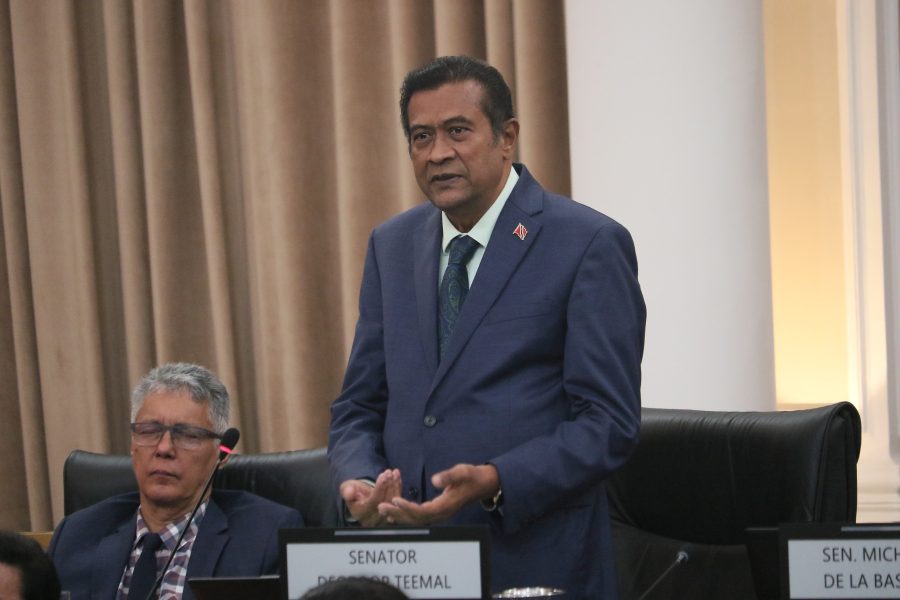Caption: Independent Senator Deoroop Teemal. Photo: T&T Parliament
By Alicia Chamely
AMENDMENTS to the Children’s Life Fund Act have been passed in the Senate.
The Senate stretched late into Monday night as revised provisions to the fund were debated at the 2nd Sitting of the Senate of the 13th Parliament, held at the Red House, Port of Spain. The amendments were passed with no objections.
The Children’s Life Fund Act was amended to include the provision of funding for children who needed to seek private or international intervention for medical conditions that were not necessarily life-threatening, but severely impacted quality of life and could be considered “life-limiting.”
Under the amended act, funding would now be provided for “life-limiting” conditions such single ventricle diseases of the heart, sickle cell disease, inherited bone marrow failure syndromes and certain blood and lymphatic cancers. It will also provide funding for kidney and organ transplants.
The act now allows for the inclusion of partnerships with private facilities and allowed for the Minister of Health to approve grants totalling $1.5 million in “exceptional circumstances.”
Concerns were raised by both Independent and Opposition Senators regarding Clause 6, Section 21A and Section 21B.
Section 21A allowed the Minister of Health to review applications rejected by the board, and affirm, annul or vary their decision.
Section 21 B would seek to grant the minister the power to review and approve a grant in exceptional circumstances.
In his contribution, returning Independent Senator Deoroop Teemal expressed his concerns that granting the minister one-sided authority to review cases could lead to the politicisation of medical cases and could undermine the credibility of the Children’s Life Fund Act Board, which can impact future funding and donations.
Independent Senator Dr Desiree Murray agreed with Teemal saying, “While I empathise with families facing delay or denial, placing the Honourable Minister, whomever that person may be, in a position to override or reverse the Board’s decisions, risks the politicising of a process that demands neutrality.”
Dr Murray also urged the government not to allow the local healthcare system to regress through exporting medical cases to foreign doctors as a failsafe, rather than strengthening the local system to be able to handle these cases.
Now that the act has been approved it will go to President Christine Kangaloo to be signed and enacted into law.
The Children’s Life Fund was established in November 2010, under the then People’s Partnership Government led by Prime Minister Kamla Persad-Bissessar.
The Fund was aimed at providing funding for youths under the age of 18 to seek international treatment for life threatening medical conditions.
At the time of its inception, Persad-Bissessar had made it mandatory that all government ministers must donate five per cent of their salaries, while the Prime Minister donated 10% of hers.
One of Persad-Bissessar’s election promises was to expand the scope of the Children’s Life Fund, allowing for children suffering from “life limiting” conditions to access medical funds.
It was revealed by Minister of Health Dr. Lackram Bodoe that between 2010 and 2025, 472 applications were made for financial assistance through the Children’s Life Fund. Of those 472 applications, 392 were approved. Cases that were not approved were denied because the applicants’ medical conditions were not classified as “life threatening.”
![]()














